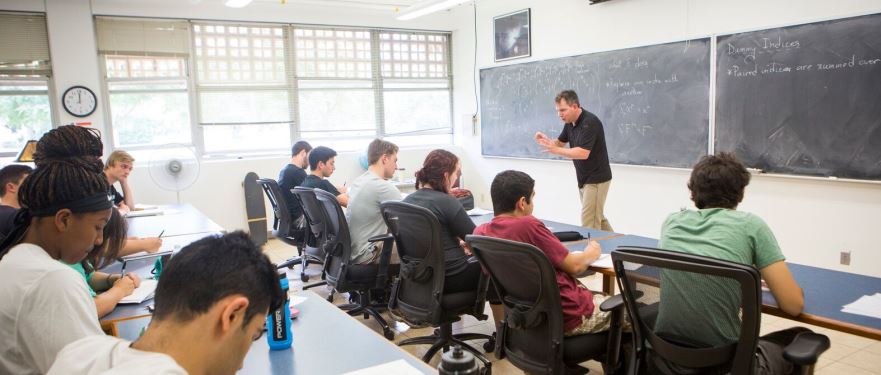Physics or Engineering Physics
What is Physics and Engineering Physics?
LMU's Physics and Engineering Physics major helps students examine how the world around us works. Physics examines the fundamental laws of matter and motion in everything from subatomic particles to galaxies.
A physicist's quest for answers extends from everyday phenomena (the trajectories of baseballs and rainbows, and even the behavior of Cheerios in a bowl of milk) to the exotic (dark matter, black holes and subatomic particles). Experimental physicists approach this task by carefully studying the way the world actually works, while theoretical physicists develop mathematical models that explain and predict phenomena.
Majors gain an understanding that physics underlies all other basic sciences, and is the basis for much of technology because it is concerned with the most fundamental aspects of matter and energy and the laws that govern their interactions.
What do Physics and Engineering Physics majors do?
Physics and Engineering Physics majors study core areas of physics: classical and quantum mechanics, electrodynamics, optics, solid state physics, and statistical mechanics.
The Physics program emphasizes an understanding of basic principles. With its many electives, the major also provides flexibility in areas of study.
Engineering Physics majors receive an extensive education in engineering - which emphasizes the application of principles - as well as in physics.
Is this major right for you?
You might be a Physics and Engineering Physics major if you:
- Are both creative and disciplined
- Are interested in the origins of the universe
- Like to ask questions about the world around us
- Seek to know how things work
- Enjoy stargazing
About our faculty
Our faculty members are experts in fields such as quantum theory, theoretical cosmology, the mystery of large-scale structure of galaxies, the behavior of various soft-condensed matter systems, the science of art, physics education research, high-resolution stellar spectroscopy, and calculating long-term correlations between spins in many-body magnetic systems.
Our faculty members are active researchers and writers who regularly present their work at conferences, publish papers in prestigious journals, and write textbooks such as College Physics and University Physics. Faculty members have earned NASA fellowships and National Science Foundation grants, tracked satellites, and designed and built spectrographs for observatory telescopes.
About our students and graduates
Our students earn internships, work closely with professors on research projects, present their work at scientific conferences and in journals, and participate in the Sigma Xi research honor society.
LMU students majoring or minoring in Physics and Engineering Physics prepare for graduate study in fields from bioengineering to law and medicine. They go on to careers as university professors, researchers in government and industrial labs, business leaders, and physicians. Our graduates have discovered new elementary particles, developed advanced military radar, worked on new photonic devices, taught at the high school and university level, and owned a high tech venture capital company.
Representative courses
Our courses have included:
- Introduction to Mechanics
- Introduction to Electricity and Magnetism
- Waves and Light
- Modern Physics
- Weapons of Mass Destruction: Fact and Fiction
- Great Ideas in Physics
- Astrophysics
- Quantum Physics
- Electrodynamics
- Space Physics
- Thermodynamics and Statistical Mechanics
- Condensed Matter Physics
- General Relativity and Cosmology
